Reaction to 'health tourism' plans
- Published
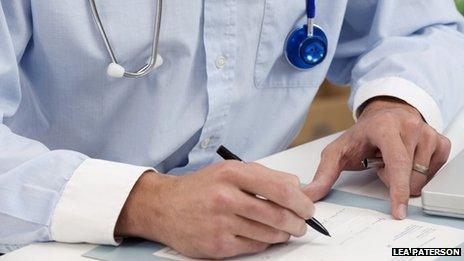
The government says patients will not be turned away under the plans
Non-EU nationals who come to the UK for more than six months could be charged at least £200 a year to access NHS treatment, external. The government says it wants to crack down on so-called health tourism - people coming to the UK to take advantage of free healthcare - but opinion is divided on how big a problem it really is and whether the plans will actually save money.
Dr Clare Gerada - Chairwoman, Royal College of General Practitioners
I've been a GP for 25 years and certainly there are some who do abuse the system. But on the whole, people who do come into this country are young and don't use the NHS as much as those that live here.
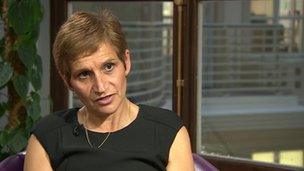
Dr Gerada: Plans could cost more than they save
We must make sure that the response is proportionate. What we don't want to do is to put people at risk - not just the migrants but also us. People use the NHS if they've got infections. We don't want people wandering around [with infections] for fear of being charged at the GP surgery.
I don't think we should be turning the GP surgery into a border agency. We should be making sure people that do feel they're ill can come and access us because we don't want people who've got TB or HIV or any infectious disease - or anybody that believes themselves to be ill - to be frightened of seeing a GP.
We need to make sure that what comes out is sensible, proportionate and fair and doesn't cost us all much more money and puts us at much more risk than the current situation.
Paddy Singh - from India, now lives in Salisbury
I am 71 and have been coming to the UK since 1983. In 2006 I got a residency permit and have recently been granted indefinite stay.

"It's a small sum to pay"- Paddy Singh
I think that anyone of any age that comes to the UK from abroad should contribute money to the NHS and I am all for the government's proposals. It is a small sum to pay each year and takes the weight off genuine taxpayers.
After the age of 50, people start to get ill and normally have to go to see the doctor more frequently than before. Surgeries and hospitals are basically writing a blank cheque for patients that come from abroad.
The NHS has been taken for a ride.
Dr Rob Barnett - GP in Liverpool
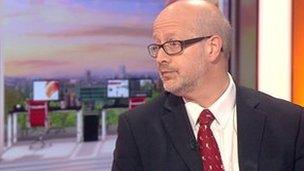
Some immigrants "want to pay" - Dr Barnett
We're going to have to undertake more checks on people. I haven't got the staff to do this. We're going to need more people, perhaps even more space, to be able to do it, and it's going to put a delay in the process.
We've got to be proportionate. If it costs £60m to recoup £30m, you've got to ask whether it's worthwhile.
From a taxpayers' point of view, clearly we don't want to be throwing money away. But I don't want to put bars in front of patients to stop them coming to see me.
There are some who do actually want to pay and find it hard to believe that they're coming here and they're not paying for anything.
Liz Kendall MP - Shadow minister for care and older people
If people have infectious diseases and don't end up going to a GP and that infection spreads, or people end up going to A and E, which costs more, it would be bad for patients as well as taxpayers.
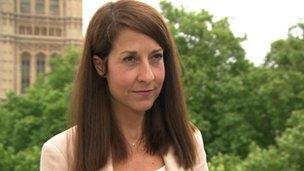
Labour MP Liz Kendall warned against "overblown rhetoric"
We need a balanced debate about this and not overblown rhetoric.
We have three key tests. Can it be effectively policed? Will it save more money than it costs? And does it protects the public's health?
If you could have an upfront system so that the money is there and you don't have to end up going through a big process of trying to get the money back, we should look at that.
Dr Ellie Cannon - GP in London
We already have a system in place to check whether patients are in the right catchment area and, if not, they're asked to leave and find a new practice. I don't see why it would be any different for health tourists.
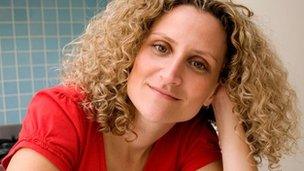
Dr Cannon says she supports the plans
Of course it's only human to treat people in need of emergency care - I'd treat someone in the street - but we're talking about those who are actively seeking out obstetric care or other kinds of treatment.
It's all well and good being liberal and caring and saying "we'll treat anyone" but we have to make cost-savings where we can so the NHS is there for everybody.
I've been asked for prescriptions by people who live abroad or who are visiting for a few months. Yes, it's a drop in the ocean of the NHS budget, but on the other hand we've got to look at all the safe areas we can in order to save money.
Saira Grant - Joint Council for the Welfare of Immigrants
What this means is failed asylum seekers, trafficked individuals, migrants whose status hasn't been resolved through no fault of their own will no longer be able to access GP services.
This will mean that part of our population that is already destitute and already can't work, will now no longer have access to medical services - and really this is going to put the burden on the A and E departments.
Melissa Wilson Craw - An American living in London

Melissa has been in the UK for seven years
It's fair to say I have taken advantage of the services offered by the NHS. It is also fair to say, however, that during my six years of employment here, I have made all of my National Insurance contributions, just like everyone else who works and lives here.
I firmly believe in the NHS, and I can guarantee that it is one of the best healthcare systems in the world.
I am happy to pay my NI contributions. What I am not happy to do is be charged between £578 to £1,426 just to get a visa to stay with my husband in this country, then a further £200 per year for access to healthcare when I still pay all my NI contributions.
Inger den Haan - Immigration adviser
I am a very experienced immigration adviser and have dealt with many cases where immigrants have needed medical care.

Inger is an immigration adviser in Coventry
The proposals are very misleading and there seems to be a lot of propaganda. There seems to be the suggestion that it is very easy to come to the UK and use the NHS, but that isn't the case.
There are some types of visas, such as medical visas, where people come here for medical treatment but they pay for everything themselves.
The people that have access to free NHS services are those who come to study or live with their families. They already pay thousands of pounds in fees or sponsorship to come over here.
The government has mentioned HIV and TB. It is overlooking the fact that free treatment for TB and HIV are in the wider public health interest as migrants will not seek treatment for TB if they cannot afford it, potentially spreading TB further, which is big a concern for the NHS.
Janet Davies - Royal College of Nursing
We agree that the NHS should use its limited resources appropriately. We welcome the commitment to develop more robust data on the numbers and types of non-EU patients and care sought to ensure any future action is evidence-based.
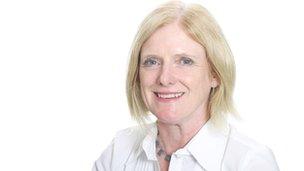
Janet Davies is the RCN's head of nursing and service delivery
We need much more information from the government on how this proposed scheme would work in practice and what pressures it will put on an already overstretched workforce. We are reviewing the details of the consultation and will be considering the implications for nursing, for patients, and for public health.
We would caution against nurses having to act as gatekeepers to NHS services when their job, first and foremost, is to provide essential care to the sick and vulnerable.
Matt Tee - NHS Confederation
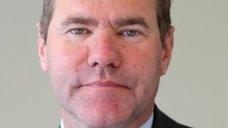
Changes must not "burden" staff - Matt Tee
We are pleased the government has indicated it plans to work with GPs and other medical professionals to improve the way chargeable patients are identified.
Eligibility for NHS care is something for the government to determine. But it is hugely important that once eligibility criteria has been set, the practicalities of identifying who meets the criteria should not impose a burden on front-line staff or cut across the fundamental professional values of our clinicians.
- Published3 July 2013